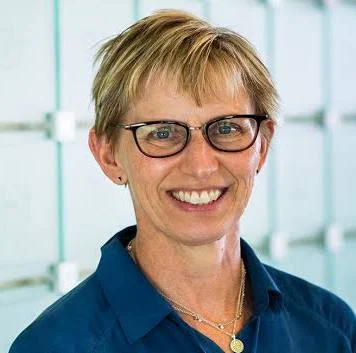Karl Meyer Lectureship Award
The Karl Meyer Lectureship Award was established in 1990 to honor the distinguished career of Karl Meyer and his outstanding contributions to the field of Glycobiology. This international award is given to well-established scientists with currently active research programs who have made widely recognized major contributions to the field of Glycobiology. 2025 Awardee - Dr. Laura Kiessling
Dr. Laura Kiessling is a world leader in chemical glycobiology who has made fundamental insights into how the interactions of glycans with lectins and glycan-binding proteins define their biological functions. Trained as a synthetic organic chemist, she was intrigued by the fact that glycan -protein interactions are often weak, with ~1 mM Kd values requiring multivalent binding to achieve a biological outcome. At a time when glycan polymer-based probes were poorly defined, she devised new synthetic approaches that could generate defined multivalent ligands to test and optimize glycan specificity and avidity. Exploiting advances in polymer chemistry, she developed methods to rapidly synthesize multivalent glycan displays that mimic the mucins selectins bind. Deploying such tools led to foundational contributions to our understanding of multivalent glycan–lectin interactions, revealing how these interactions can encode and co-opt biologically specific recognition processes. A hallmark of Dr. Kiessling’s work is the seamless integration of synthetic chemistry, polymer science, glycobiology, and immunology. From advances in multivalent recognition, her laboratory conceptualized polymers as signaling tools. Because cell signaling often requires receptor clustering, Dr. Kiessling designed synthetic ligands that co-cluster receptors to activate or inhibit cellular pathways. Her studies revealed that multivalent ligands can downregulate B cell receptor signaling by engaging the B cell receptor and CD22 and virus-like particles targeting lectins can reprogram dendritic cells to promote anti-tumor T cell responses. Strikingly, her group showed that clustering can even drive targeted protein degradation, as demonstrated with the proteolytic release of L-selectin. These discoveries established multivalent synthetic ligands as versatile probes of signaling mechanisms with therapeutic potential. More recently, Dr. Kiessling has characterized previously uncharted lectins at the host–microbe interface. Her team identified human intelectin-1 as the first known lectin selective for microbial sugars, solved the first structure of an intelectin, and elucidated its recognition mechanism. Building on this work, her group has revealed how soluble lectins recognize glycans to mediate unanticipated biological roles, including selective cytotoxicity against microbes. More recently, her studies of intelectin-2 and related lectins highlight their broad-spectrum antimicrobial potential and expand our understanding of innate immune recognition. Dr. Kiessling’s scientific accomplishments have been recognized by several awards including a MacArthur Foundation Fellowship (1999), a Guggenheim Fellowship (2009), the Bader Award in Bioorganic Chemistry from the American Chemical Society (2014), and the Centenary Prize from the Royal Society of Chemistry (2019). She is a member of the National Academy of Sciences (2007), the American Philosophical Society (2017), and the National Academy of Medicine (2023). In addition to her transformative research, Dr. Kiessling has mentored 78 Ph.D. students and more than 42 postdoctoral fellows, many of whom now hold leadership roles across academia and industry. Her outstanding commitment to training the next generation of glycoscientists will continue to profoundly impact the field. For fundamental contributions to our molecular understanding of glycan recognition and its relevance to immunity, infection, and human health, Dr. Laura Kiessling will be recognized as the recipient of the 2025 Karl Meyer Lectureship Award by the Society for Glycobiology.
|

